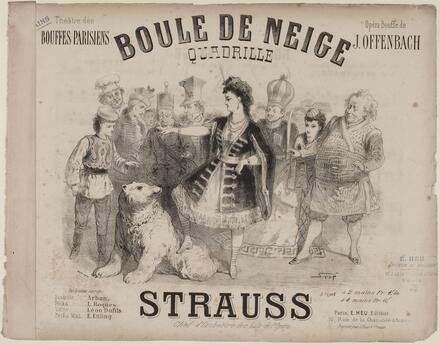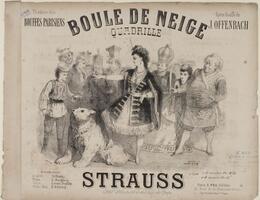Boule-de-Neige

Opéra bouffe in three acts premiered on 14 December 1871 at the Théâtre des Bouffes-Parisiens.
Boule-de-Neige was derived from a previous opera by Scribe and Offenbach, entitled Barkouf, which had been withdrawn by the Opéra-Comique in 1860, after only seven performances. Although Offenbach reused several numbers from the earlier work, the overall storyline was altered substantially. The action, which had been situated in Lahore in the opera of 1860, was now moved to the land of the “Grand Khan” – the term for an emperor in the Mongolian, Tungusic and Turkish languages. And the dog, Barkouf, which had given its name to the work, was replaced by the bear, Boule-de-Neige. In both works, these eponymous animals were used by desperate monarchs to govern their rebellious subjects more effectively. In 1860, the press had been up in arms at the choice of a dog as the lead character. In L’Année musicale, Scudo had described the opera as “chiennerie” (a dog’s dinner) and deemed its subject unworthy of audiences at the Opéra-Comique. Some reviewers also stressed the problematic political import of the two works: in both, the animals prove to be more human than the governors whom they replace. And yet they also come over as powerful comic forces rather than frightening beasts, triggering wacky new developments. Consequently Boule-de-Neige signs some ridiculous decrees through its tamer Olga. Pursued by henchmen, the latter’s lover, Kachmir, comes up with the idea of donning a bearskin and taking Boule-de-Neige’s place. Despite these revisions, Boule-de-neige was no more successful than Barkouf. After several months of performances, the work was withdrawn from the programme.

